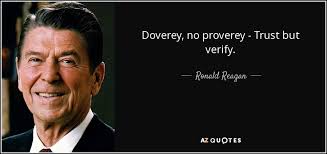Did you know the 6-page memo approach of Jeff Bezos for his meetings with the top managers of Amazon. Think of this: If you are meeting with Jeff Bezos on a regular basis, then it is highly likely that you have the experience, education and motivation of a high performing executive.
And yet, Jeff does not expect these Amazon executives to prepare adequately for the meeting. He knows they are busy and Jeff gives them time and opportunity to be aligned with the rest of the executive team before going to a discussion.
What are the equivalents of the 6-page memo in your life?
I hope you appreciate the amount of time and effort that went into preparing 6 page memos in lieu of fancy powerpoints or videos. It will never be perfect but doing this at the very start of the class is worth it.
Lets put this in the CraZYx framework
The new normal, during and post pandemic, is characterized by limitations on live face to face interactions. Now more than ever, a significant portion of work (and life) happens while one is in cyberspace where time sychronicity is not a must. Consequently , there are a lot of important things that need to happen or are happening that cannot be seen.

For MBA classes, this requires a special agreement between the professor and the students that verification needs to be done to ensure that assigned work, readings and activities are indeed done in a timely, progressive, sequential manner. Failure to do so results in lower teaching and learning outcomes, to the ultimate detriment of the student in particular and society in general.
“… A specific type of team—one where members are both highly independent and trusting of one another—deliberate monitoring is important. Even if members of such teams do suspect that supervision would be wise, they may be uncomfortable suggesting it. Failing to keep an eye on team members’ activities can be naive.”
– Gardiner Morse, Trust But Verify, Harvard Business Review, May 2005 https://hbr.org/2005/05/trust-but-verify
Fortunately, learning management systems like Canvas and even Google forms allow such verification to be done easily and flexibly – still recognizing the constraints presented by internet access issues, mobility constraints and work challenges.
Verification can be done by simple objective questions (multiple choice, fill in the blank), essay type of reactions (harder to link to actual work done due to the subjectivity) or output based outcomes (assign an outcome, and if the student did the pre-work, the correct outcome will show.)
As long as students, workshop participants and professors agree that verification produces better outcomes than no verification, then the world can trust that learning will happen, and the world will be better for it.

Learn more about the history and context of Trust but Verify here…
